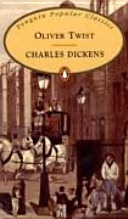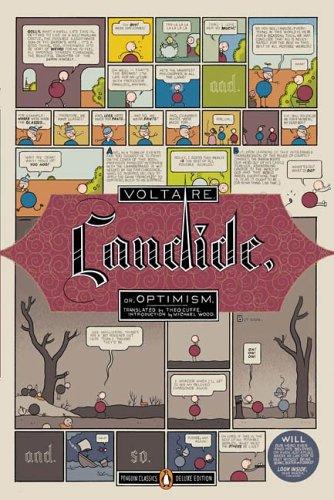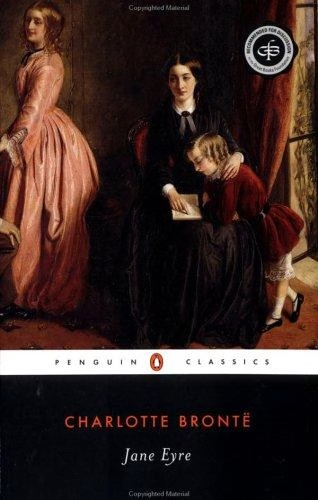Plot Summary
The Workhouse and Apprenticeship
Oliver Twist is born in a parish workhouse in an unnamed English town. His mother, a young woman found dying in the street, gives birth and then passes away without revealing her identity. Lacking a name, the parish beadle, Mr. Bumble, names the boy “Twist” in alphabetical order of new arrivals. Oliver spends his first nine years in a “baby farm” run by Mrs. Mann, where he and other orphans are neglected and starved.
On his ninth birthday, Mr. Bumble removes Oliver from the farm and brings him to the main workhouse. Here, the boys are systematically starved on a diet of thin gruel. Driven by desperation, the other boys choose Oliver to ask for a second portion. His famous plea, “Please, sir, I want some more,” scandalizes the workhouse authorities. They declare him a troublemaker and offer a five-pound reward to anyone who will take him as an apprentice.
Oliver narrowly escapes being apprenticed to a brutal chimney sweep, Mr. Gamfield, when a magistrate sees the terror on his face and refuses to sign the indentures. He is then apprenticed to Mr. Sowerberry, the parish undertaker. He finds little comfort there, as he is mistreated by Mrs. Sowerberry, tormented by the senior apprentice Noah Claypole, and forced to sleep among coffins. The final straw comes when Noah insults Oliver’s dead mother. In a fit of rage, Oliver attacks Noah, which leads to a severe beating and confinement. Feeling utterly alone and desperate, Oliver runs away, resolving to walk the seventy miles to London to seek his fortune.
Escape to London and Fagin’s Den
Weak and starving from his seven-day journey, Oliver arrives at the outskirts of London. He meets Jack Dawkins, a boy his own age who is better known as the Artful Dodger. The Dodger offers Oliver food and shelter, leading him to the squalid London neighborhood of Saffron Hill. He is brought to the den of an old, shriveled man named Fagin, who presides over a gang of young pickpockets.
Oliver lives with Fagin, the Dodger, and another boy named Charley Bates. He naively believes they make handkerchiefs and wallets. Fagin engages the boys in a “game” where they practice stealing handkerchiefs and valuables from his pockets. Oliver is kept isolated for many days, until he begs to go out and “work” with the Dodger and Charley. Fagin finally allows it, sending them out on a pickpocketing expedition.
The First Robbery and a Glimpse of Salvation
The Dodger and Charley spot a wealthy, respectable-looking gentleman, Mr. Brownlow, engrossed in a book at a stall. The Dodger steals his handkerchief and, along with Charley, flees. Oliver, horrified at what he has witnessed, also runs away in terror. Mr. Brownlow sees Oliver running and, assuming he is the thief, raises the cry of “Stop thief!” A mob pursues Oliver, catches him, and he is taken before a ruthless magistrate, Mr. Fang.
Though Oliver is too ill and faint to defend himself, Mr. Brownlow begins to have doubts about his guilt. Just as the magistrate is about to sentence Oliver to three months of hard labor, the bookseller arrives and testifies that he saw two other boys commit the theft. Oliver is exonerated but collapses in the courtroom from a fever. Mr. Brownlow, taking pity on him, brings Oliver to his comfortable home in Pentonville, where he is cared for by the kind housekeeper, Mrs. Bedwin.
As Oliver recovers, his gentle and innocent nature endears him to Mr. Brownlow. Brownlow is struck by Oliver’s strong resemblance to a portrait of a young woman that hangs in his house. This deepens his interest in the boy’s mysterious origins.
Recapture and the Burglary Attempt
Fagin, fearing Oliver might expose his criminal operation, is desperate to get him back. He enlists the help of the brutal housebreaker Bill Sikes and a young woman named Nancy, who is fiercely loyal to Sikes despite his cruelty. While Oliver is running an errand for Mr. Brownlow, Nancy accosts him in the street, pretending to be his sister. With Sikes’s help, she forcibly kidnaps him and returns him to Fagin’s den.
Fagin keeps Oliver a virtual prisoner. Later, a housebreaking job is planned by Sikes, who needs a small boy to climb through a window. Fagin offers up the terrified Oliver. Sikes takes Oliver from London to a dilapidated house in Shepperton. There, they meet with Sikes’s accomplice, Toby Crackit. In the dead of night, they proceed to the targeted house in Chertsey—the home of the Maylie family.
- Oliver is forced through a small pantry window, with orders to go and open the front door for the robbers.
- Resolved to risk his life to warn the family, Oliver instead tries to run up the stairs to raise the alarm.
- The household servants, Giles and Brittles, are awakened. Giles fires a pistol, hitting Oliver in the arm.
- In the ensuing chaos, Sikes pulls the wounded Oliver back through the window and flees, carrying the boy.
Pursued by the servants, Sikes and Crackit eventually abandon the unconscious Oliver in a ditch and escape.
A Second Salvation with the Maylies
After a night of feverish delirium, Oliver awakens and stumbles back to the very house he was forced to rob. He collapses on the doorstep and is discovered by the servants. Instead of turning him over to the police, the compassionate owner, Mrs. Maylie, and her beautiful adopted niece, Rose, decide to care for him when they see he is just a child. Their good-hearted doctor, Mr. Losberne, helps them conceal the matter from the authorities.
Oliver is nursed back to health and tells the Maylies his life story. They are moved by his tale of suffering and innocence and embrace him as part of their family. He spends an idyllic summer with them in a country cottage, experiencing happiness and peace for the first time in his life. However, this peace is disturbed one evening when Oliver, half-asleep at a window, sees Fagin and a sinister stranger named Monks peering in at him. They vanish before he can raise the alarm, leaving him terrified.
Unraveling the Conspiracy
Rose Maylie falls gravely ill with a fever. In her distress, Mrs. Maylie sends her son, Harry, a letter, though she hesitates to post it. While Rose lies near death, Nancy, wracked with guilt over her role in Oliver’s suffering, makes a secret journey to the Maylies’ hotel in London. She finds Rose, who has just begun to recover, and reveals what she knows:
- Monks is the man who was with Fagin. He is Oliver’s half-brother and has been plotting to destroy him.
- Monks paid Fagin to recapture Oliver and turn him into a criminal, which would cause Oliver to be disinherited according to their father’s will.
- Monks has destroyed a locket and ring—the only proof of Oliver’s parentage—which he obtained from a corrupt workhouse official, Mr. Bumble.
- Nancy refuses to leave her life of crime or betray Fagin and Sikes, but agrees to meet Rose again on London Bridge every Sunday night, should she be needed.
Rose relates this story to Mr. Brownlow, who has returned from the West Indies and has been searching for Oliver. They bring Mrs. Maylie, Mr. Losberne, and Harry Maylie into their confidence, and together they resolve to uncover the full truth and secure Oliver’s inheritance.
The Climax: Nancy’s Murder and Sikes’s Downfall
Fagin becomes suspicious of Nancy’s strange moods and absences. He employs Noah Claypole, who has run away from the Sowerberrys and joined his gang, to spy on her. Noah follows Nancy to her second meeting on London Bridge with Rose and Mr. Brownlow. He overhears their entire conversation, including Nancy’s disclosure of Monks’s identity and her refusal to betray Fagin and Sikes.
Noah reports this back to Fagin. Enraged, Fagin twists the story, telling Bill Sikes that Nancy has betrayed him and the gang. In a fit of uncontrollable rage, Sikes rushes home and brutally murders Nancy with a club. Consumed by guilt and terror, Sikes flees London, haunted by the vision of Nancy’s dead eyes. He is recognized, and a huge mob pursues him to a hideout on Jacob’s Island. While trying to escape over the rooftops, he accidentally hangs himself with his own rope and falls to his death.
Revelations and Resolution
Mr. Brownlow finds and captures Monks. He reveals that his real name is Edward Leeford and that he and Oliver are the sons of the same father, Edwin Leeford. Brownlow was Edwin’s closest friend.
- Edwin Leeford was forced into an unhappy marriage with Monks’s mother and they separated.
- He later fell in love with a young woman, Agnes Fleming (Rose Maylie’s older sister), who became pregnant with Oliver.
- Edwin died in Rome before he could return to Agnes, leaving a will that bequeathed a large part of his fortune to Oliver, on the condition that he commit no dishonorable act. If he did, the inheritance would go to Monks.
- Monks’s mother destroyed the will, and Monks has been hunting Oliver ever since to ensure he gets the entire fortune, either by ruining the boy’s name or killing him.
Monks is forced to confess and make restitution. Fagin is arrested, tried, and sentenced to hang. In a final, terrifying scene, Oliver and Mr. Brownlow visit him in his condemned cell, where Fagin reveals the location of papers relating to Oliver’s identity.
In the end, Mr. Brownlow adopts Oliver as his son. Rose Maylie, revealed to be Oliver’s maternal aunt, marries Harry Maylie, who has given up his political ambitions to become a country parson. They all settle together in a quiet country village, forming a new family built on love and virtue.
Characters
Oliver Twist
The novel’s protagonist, Oliver is the embodiment of innate goodness and innocence. Despite being born into the harshest poverty and raised in an environment of cruelty and crime, he maintains a pure heart and a powerful desire for love and decency. Oliver is largely a passive character; the plot is driven by what happens to him rather than by his own actions. His journey is a constant struggle between the forces of evil (Fagin, Sikes, Monks) trying to corrupt him and the forces of good (Brownlow, the Maylies) seeking to save him. His unwavering virtue serves as Dickens’s argument that a person’s character is inherent and not solely determined by their environment.
Fagin
A master criminal and the leader of the gang of young pickpockets, Fagin is one of literature’s most memorable villains. He is manipulative, greedy, and utterly devoid of moral scruples, finding pleasure in corrupting innocent children for his own profit. He operates through cunning and psychological control rather than brute force, presenting a “merry old gentleman” facade to lure boys into his service. He is both a character and a symbol of the dark, corrupting underbelly of London. His final night alive in the condemned cell is a powerful depiction of a man driven mad by terror and the ghosts of his own evil deeds.
Bill Sikes
Sikes is the brutal, violent counterpart to Fagin’s cunning. A housebreaker by trade, he is a man of pure, animalistic rage and impulse, with little intelligence or foresight. He treats everyone, especially his loyal partner Nancy and his dog Bull’s-eye, with cruelty and contempt. While Fagin corrupts the soul, Sikes destroys the body. His murder of Nancy is the book’s most shocking act of violence, and his subsequent flight, haunted by guilt and the phantom of her eyes, is a terrifying study of a conscience tormented to the point of destruction.
Nancy
Arguably the most complex and tragic character in the novel, Nancy is a product of Fagin’s criminal world. She is a “fallen woman,” a thief and a drunkard, but she retains a core of compassion and loyalty. Her character is defined by a deep internal conflict: her fierce, self-destructive love for the abusive Bill Sikes clashes with her maternal pity for the innocent Oliver. This conflict leads her to betray Monks’s secrets to Rose Maylie, an act of redemption that directly results in her own brutal murder. Her death solidifies her status as a martyr, a victim of a society that offered her no escape from the life she was forced into.
The Artful Dodger (Jack Dawkins)
Fagin’s most promising pupil, the Artful Dodger is a charismatic and street-smart pickpocket who embodies the criminal life with flair and confidence. He introduces Oliver to Fagin’s world and serves as a model of what Oliver is supposed to become. Despite his cheerful swagger, the Dodger is thoroughly corrupted by his upbringing, seeing crime not as a moral failing but as a respectable trade. His eventual capture and nonchalant defiance in the courtroom show a character who is a proud product of his debased environment.
Mr. Brownlow
Mr. Brownlow is the first figure of true kindness and benevolence Oliver encounters. A wealthy and respectable gentleman, he represents the compassionate upper-middle class and the possibility of salvation from the slums. Though he briefly doubts Oliver after his recapture, his inherent goodness leads him to seek the truth. He becomes Oliver’s staunchest protector and, fittingly, is revealed to have been his father’s best friend, ultimately adopting Oliver and restoring his rightful place in society.
Rose Maylie
The very ideal of Victorian womanhood, Rose is the embodiment of purity, compassion, and virtue. Adopted by Mrs. Maylie, she lives in a pastoral, idyllic world that stands in stark contrast to the squalor of London. She becomes Oliver’s fiercest advocate and a symbol of angelic goodness. Her willingness to meet with and pity Nancy, despite their vast social differences, demonstrates her profound capacity for empathy. The eventual revelation of her own “stained” origins (as Agnes Fleming’s sister) deepens her connection to Oliver and reinforces the theme that true worth is independent of social status.
Monks (Edward Leeford)
The primary antagonist driving the plot from the shadows, Monks is a figure of pure melodrama. As Oliver’s half-brother, his actions are motivated by a venomous hatred and greed. He conspires to destroy Oliver’s reputation and claim their father’s entire inheritance. He is physically marked by his evil nature, prone to fits of rage and seizures, and lacks the complexity of Fagin or Sikes. Monks represents a hereditary, almost gothic evil, obsessed with a family secret and willing to go to any lengths to ruin his innocent brother.
Core Themes
The Failures of Social Institutions
Oliver Twist is a powerful indictment of the social institutions of Victorian England, particularly the New Poor Law of 1834. The workhouse system, meant to aid the poor, is depicted as a cruel and dehumanizing institution that starves and abuses those it is supposed to protect. The arrogant and hypocritical parish officials, personified by Mr. Bumble, are more concerned with their own petty authority and saving money than with human compassion. The infamous scene where Oliver asks for more gruel is a direct satirical attack on the calculated cruelty of this system. Similarly, the legal system is shown to be arbitrary and merciless, as seen in the character of the brutish magistrate Mr. Fang, who is quick to condemn the innocent without evidence.
The Dichotomy of Good and Evil
The novel is structured around a stark contrast between two worlds: the dark, vicious criminal underworld of London and the bright, virtuous world of the respectable middle class. Oliver’s journey sees him physically moved between these two spheres. Fagin’s den is a labyrinth of filth and moral corruption, while Mr. Brownlow’s house and the Maylies’ country cottage are havens of cleanliness, comfort, and kindness. Characters are often sharply divided along these moral lines. Figures like Rose Maylie and Mr. Brownlow represent pure good, while Fagin, Sikes, and Monks represent calculated or brutish evil. Nancy is the key exception, a character tragically caught between these two opposing worlds, possessing a good heart but chained to a life of evil.
The Corrupting Influence of the City vs. the Purity of the Countryside
Dickens employs a common theme in his work by contrasting the moral landscape of the city with that of the country. London is portrayed as a dark, foggy, and maze-like den of iniquity, a place where poverty, crime, and disease fester. It is in the city that Oliver is exposed to criminals and endures his greatest suffering. Conversely, the countryside, where the Maylies’ cottage is located, is depicted as a paradise of natural beauty, fresh air, and moral purity. It is in this idyllic setting that Oliver is nursed back to health, educated, and experiences true happiness. The countryside is a place of healing and salvation, while the city is a source of corruption and danger.
The Question of Inherent vs. Nurtured Morality
A central philosophical question of the novel is whether an individual’s character is innate or shaped by their environment. Oliver is born and raised in the most degrading conditions imaginable—the workhouse, the undertaker’s, and Fagin’s den. Yet, he maintains his essential goodness and innocence, shrinking from dishonesty and violence. In contrast, characters like the Artful Dodger and Charley Bates are products of their environment, cheerfully embracing a life of crime. Through Oliver, Dickens argues for the existence of an inherent, almost angelic virtue that cannot be entirely extinguished by a corrupting environment. Oliver’s survival and ultimate triumph are a testament to the resilience of the human spirit’s good nature.
Plot Devices
Satire and Social Commentary
Dickens uses Oliver Twist as a vehicle for sharp social satire. He skewers the bureaucracy and hypocrisy of the institutions designed to care for the poor. The workhouse board members, who philosophize about the poor liking their comfortable lives while instituting a starvation diet, are prime examples. The character of Mr. Bumble, the pompous and self-important beadle, is a satirical critique of petty officials who abuse their minor authority. Dickens’s narrator frequently employs a sarcastic and ironic tone to highlight the absurdity and cruelty of the situations he describes, forcing the reader to confront the injustices of the society.
Melodramatic Coincidence
The plot of Oliver Twist is driven forward by a series of highly improbable coincidences, a hallmark of the melodrama genre popular at the time. For example:
* Of all the people in London, Oliver happens to be sent to pickpocket Mr. Brownlow, who was his own father’s best friend and holds the portrait Oliver so closely resembles.
* The house Sikes forces Oliver to burgle just happens to belong to the Maylies, who are the adoptive family of his maternal aunt, Rose.
* Monks happens to be passing in the street at the exact moment Oliver is taken from Mr. Brownlow’s house.
These coincidences, while unrealistic, serve to connect the disparate parts of the plot and ensure that the forces of good and evil are constantly brought into conflict, ultimately leading to the revelation of Oliver’s true identity.
Symbolism
Dickens uses powerful symbols to reinforce his themes. London itself is a symbol of darkness, corruption, and social decay, with its labyrinthine streets and foggy atmosphere representing a moral maze from which it is difficult to escape. The countryside, in contrast, symbolizes purity, peace, and salvation. The locket left by Oliver’s mother is a crucial symbol of his hidden identity and the love that was denied him at birth. It represents the link to the respectable world that was stolen from him and must be reclaimed. Finally, the recurring motif of eyes, particularly the haunting image of Nancy’s dead eyes that follows Sikes, symbolizes inescapable guilt and the idea that one’s crimes can never truly be hidden.
Pathos
Pathos, the appeal to the reader’s emotions of pity and sympathy, is a key device used by Dickens to highlight the plight of his characters. The suffering of the innocent Oliver—as a starving orphan, an abused apprentice, and a terrified captive—is described in detail to evoke outrage and compassion from the reader. The character of Nancy, torn between her love for a monster and her desire to do good, is another source of intense pathos. Her brutal murder is one of the most powerful and emotionally devastating scenes in the novel, designed to shock the reader and underscore the tragic consequences of her entrapped life. By making the reader feel deeply for his characters, Dickens strengthens the moral and social impact of his story.





